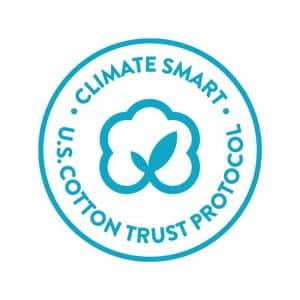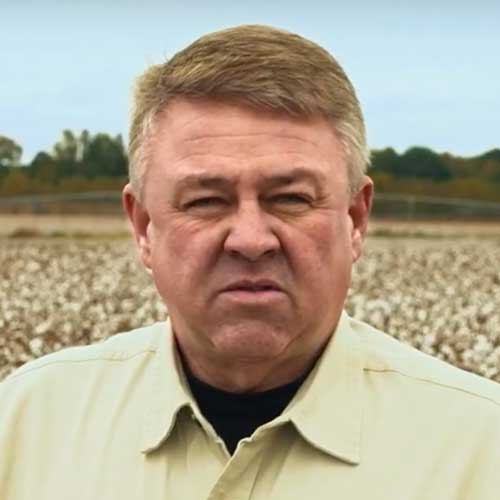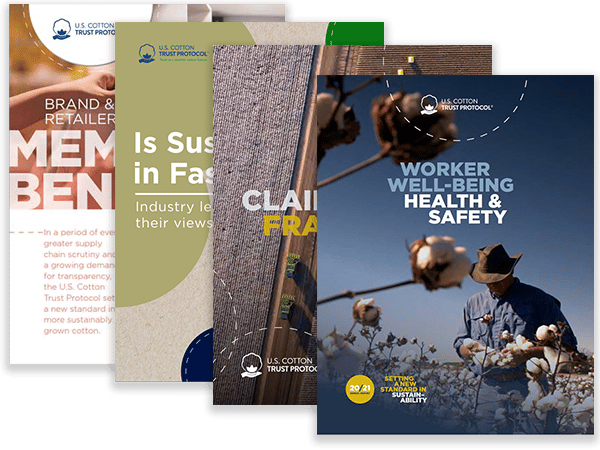Growers
Brand and retailer membership continues to grow, demonstrating an increasing demand for your sustainably grown cotton. Together, we can help meet this demand.
The U.S. Cotton Trust Protocol is the voluntary sustainability program for U.S. cotton growers. This means that brands and retailers can trust where their cotton comes from and feel good about sourcing it.
As a U.S. cotton grower, you’ll benefit from field-level insights that can save you money and improve efficiency. You’ll also be able to measure the impact of your sustainable growing practices.
Learn more below.
U.S. Cotton Trust Protocol Grower Benefits
- Field-level insights to help save money and improve efficiencies
- Ability to measure and verify sustainable growing practices
- Improved exposure and access for marketers
- National sustainability initiative for the industry and proven program infrastructure
- Opportunity to apply for the Climate Smart Cotton Program
The program is free and voluntary for U.S. cotton producers.

The Climate Smart Cotton Program, led by the Trust Protocol, is a 5-year initiative that presents a transformative opportunity for cotton growers, offering a range of benefits that go beyond sustainability. The Climate Smart Cotton Program offers critical guidance and resources to help growers successfully implement Climate Smart Agriculture (CSA) practices. By doing this, you can reduce input costs, allowing you to optimize your operations and improve profitability. Growers also have the potential to achieve yield improvements, enhancing their productivity and crop quality.
Click here to learn more.
Verification Process
Everything begins with our growers who provide farm-level information on six key sustainability metrics. By doing this, you can identify areas of improvement in your operations and provide you with self-assessment and benchmarking capabilities.
But we also know that verification is important. It helps us monitor success, keep our grower questionnaire applicable, and ensure that there are no gaps between self-declaration and actual data. Plus, it gives brands and retailers the confidence they need to source U.S. cotton.
For verification processes, all grower members will be automatically placed into a producer group based on their growing region.
The Trust Protocol then applies the square root methodology in order to determine the number of second and third-party verifications for that crop year.
The use of second party verification, which is done online or over the phone, creates a more robust and credible verification cycle and system. Third-party, or onsite visits, are up to a half day visit walking through the farm as well as reviewing any additional paperwork required for the verification of the questionnaire and FPC piece.
If selected, participating in a third-party, independent verification will be required. It’s a necessary step to make sure you’re in compliance with the program. We’ll be there to help you every step of the way and walk you through the process.
The Trust Protocol’s mission is to bring quantifiable and verifiable goals and measurement to sustainable cotton production which provides brands and retailers with the critical assurances they need to confidently source more U.S. cotton. A successful program is a good for growers and their farming operations and helps ensure a viable market for U.S. cotton.
“The reason we joined the U.S. Cotton Trust Protocol was to show as U.S. cotton producers, we’re growing a good quality product, using the best quality practices available today.”

Brad Williams


